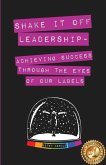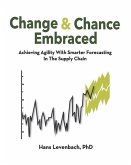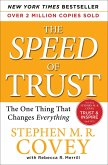In the 21st Century no business or government will make decisions without relying on digital information. Can you trust the information you use to make decisions? Can your decisions be trusted by others? Trust is under attack, making every decision more vulnerable. This is equally true for customers and for each of us in our daily decisions--without trust, spending and other investments shift to other options. To achieve digital trust, Jeffrey Ritter explored the essence of trust itself. He discovered something remarkable--trust is a calculated decision, not an emotion. That simple truth required a new way to think differently about trust, especially digital trust, and ignited the author to create and build something new, rather than merely patch the status quo. Described by executives in the opening pages as "essential reading for corporate executives," "ground-breaking," "fascinating," and a book that "will transform the dialogue about governance in a digital world," Achieving Digital Trust boldly declares risk management dead as a business discipline and offers, instead, an integrated strategy for building something new--digital trust. Woven across a story of two fictional global competitors battling to survive and prosper, Ritter introduces a complete, integrated portfolio of tools he created to help business executives, IT strategists, and innovation leaders survive and excel in our digital world: -A Trust Vocabulary-a shared lexicon of new phrases and terms, and new meanings for existing words, that enable discussion of trust decisions and increase efficiency of trust calculations. -The Trust Decision Model-an integrated view of the sequential decision points and information layers that link together the steps taken when deciding whether or not to trust, and builds a bridge between human and computational trust. -The Rules for Composing Rules-a set of fundamental principles for authoring effective rules for crossing the chasm between the ambiguity of broad, governing formal rules and the binary precision of executable software code. -The Unified Rules Model-a new architecture for organizing the complexity of business, technology, and legal rules into unified, functional structures supporting the design and execution of digital systems that deliver compliance and earn our trust. -The Unified Information Model-a new framework for organizing and designing digital information assets that result in more effective trust decisions and enhanced governance. -The Digital Trust Design Principles-a framework for choosing among priorities and trade-offs to focus resources appropriately and improve desired outcomes. -The Trust Prism-an entirely new, 3-D, visual tool for designing, building, and governing complex information systems, including in the Cloud . . . and more. Together, these are a complete tool-kit that will change how leaders and executives make decisions that matter, build digital assets that can be trusted, and visualize and manage the complexity of their companies and the wired ecosystems in which they compete.








